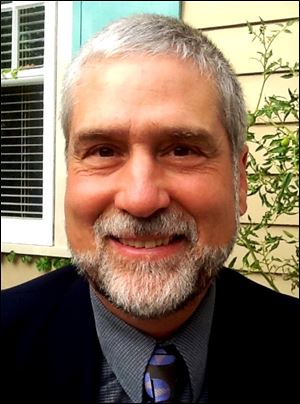
GUEST COMMENTARY
Americans still need a national health plan for everyone
An expanded Medicare program would save enough money in reduced bureaucracy to cover every uninsured American
10/19/2014
Ross
America’s 57 highest-paid health insurance executives collected a total of $300 million in salary and bonuses last year. The complex medical insurance market and the profit motive make private insurers a bad bargain.
Doctors and hospitals waste enormous sums on insurance paperwork and bureaucracy. More competition generates more administrative expenses, as well as astronomical salaries for insurance CEOs.
These money-changers thrive by chasing money to pay for care, not by delivering it. Meanwhile, nearly 2,000 Americans go bankrupt every day because of medical crises and debt, even though most were insured against illness or injury.
Republican governors in 21 states — not including Ohio and Michigan — still refuse to expand their states’ Medicaid programs under the federal Affordable Care Act. Medicaid covers the poorest of uninsured Americans, including the working poor. As many as 17,000 unnecessary deaths are likely to occur each year because of these governors’ political failure, a new Harvard University study estimates.
Yet even if the ACA were fully implemented, 31 million Americans would remain uninsured. In this wealthy country, with the best doctors, nurses, and hospitals in the world, we allow tens of thousands of people to die every year from lack of health insurance coverage.
As a primary care physician in Toledo, I can tell you this human toll is real. I see patients who are at grave risk, but cannot afford blood pressure or diabetes medicine. I see them die after the heart attack or stroke they would not have had if they had been able to afford care.
Individual market forces, such as high co-payments or medical savings accounts, will not lower health-care costs because the most expensive services are the least negotiable. Can a patient with a ruptured appendix, who is on morphine, haggle over fees?
Health care is a human need that should be available to every American. A national health insurance program — an expanded Medicare program for all Americans — would save enough money in reduced paperwork and bureaucracy to cover every uninsured American and improve coverage for all of us.
It would eliminate the high co-payments and deductibles of the present system. It would allow each of us to choose our own doctor and hospital, not force us to pick from a narrow provider network that profits an insurance company.
The Affordable Care Act includes provisions for experimentation. Any new approach cannot cost more than the ACA, and must cover just as many people with equivalent or better benefits. For nearly 50 years, Medicare has done that for tens of millions of uninsured elderly and disabled Americans.
Powerful, monied interests would oppose Medicare expansion. The same ideologues who would deny medical coverage to the poorest of the poor, and who lied to us about “death panels,” would call this the biggest tax increase in history.
They will not mention that improved, expanded Medicare would also lead to an even larger decrease in premiums, co-pays, and deductibles. About 95 percent of Americans would pay less for care than they do now.
Critics will say that the government cannot do anything as well as the private sector, but Medicare works where private insurance does not. It is just too complex and costly to administer 300 million individual policies, with different co-pays, deductibles, and coverage networks. What we have now costs too much and will never cover everyone.
This is a political fight as well as a moral one. We must insist that our elected officials understand that our lives are literally at stake, and that we will defend ourselves from their negligence.
Improved and expanded Medicare for all will save lives and money. It is the right thing to do. Being uninsured is worse than being at war. Americans will have to fight politically to end this travesty.
Johnathon Ross, M.D., of Toledo is past president of Physicians for a National Health Program.